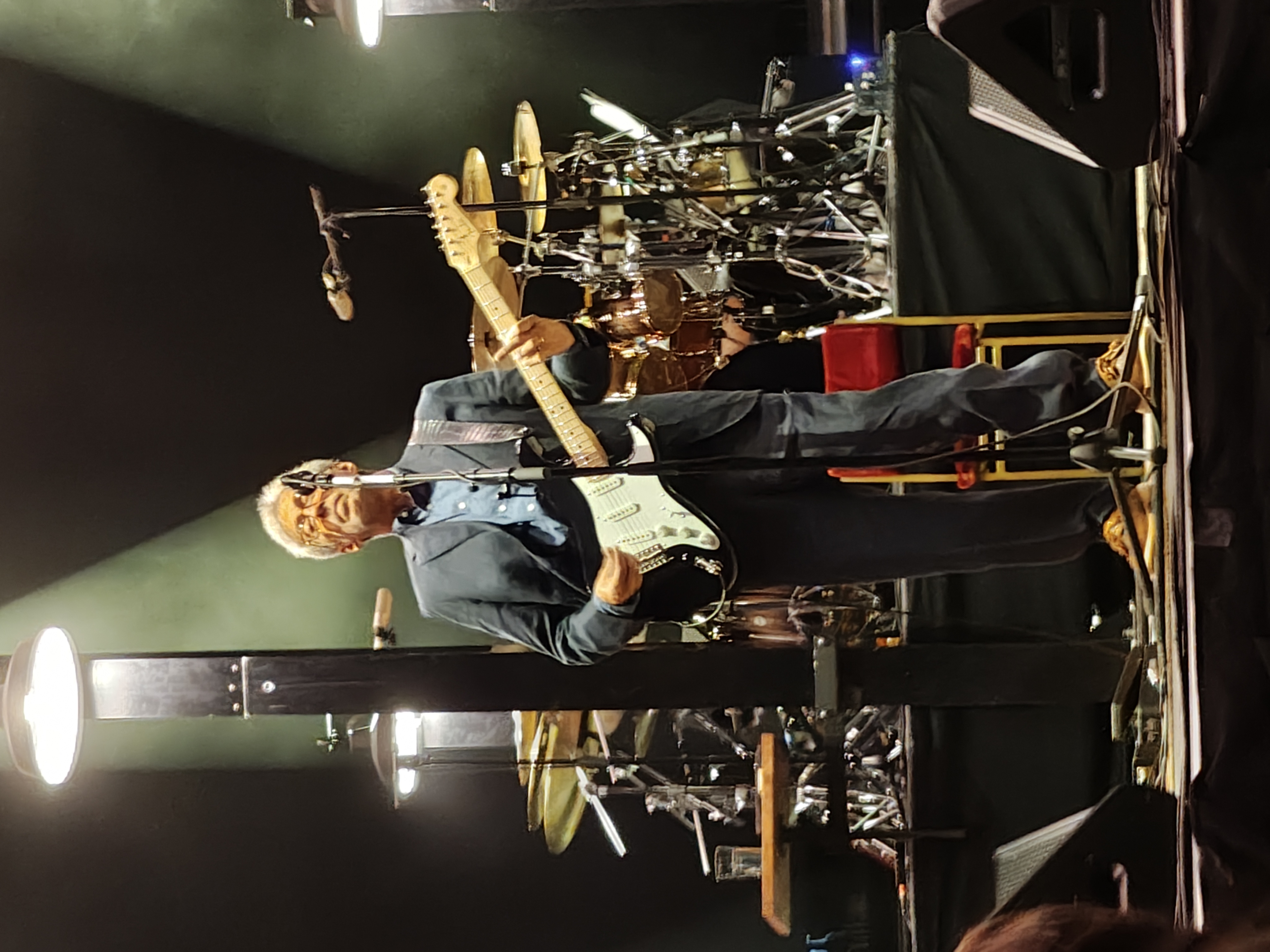God Visits Philadelphia

In 1965 the graffiti, “Clapton is God,” appeared on a wall in Islington, London. The slogan was later replicated in other locations, including New York. It was a tribute to an up and coming 20 year old musician named Eric Clapton, whose fire and fluency on the electric guitar were considered godlike.
In common with a number of English guitarists of that time, Clapton was a student of the blues. This was African American music that originated in the deep south and later spread northwards to cities like Chicago. The blues enjoyed an initial period of popularity in the 1920s and 30s, when guitarists would travel from town to town, sometimes playing and singing on street corners, or for money in dancehalls. Some, such as Robert Johnson and Skip James, were recorded and their records released as 78s and marketed exclusively to African Americans.
By the 1960s, as black audiences were becoming more interested in soul music, the blues experienced a renewed surge in popularity among white audiences. In England, Clapton and his peers were galvanized by it - here was music that was both simple and deep, where feeling mattered as much as technical ability. Clapton had both, and saw himself as an evangelist for the blues. After all, this wasn’t your parents’ music. Frank Sinatra and Bill Bill Broonzy were as different as chalk and cheese.
Eric Clapton played in a band led by John Mayall called the Bluesbreakers, and built his reputation as an incendiary and soulful interpreter of the blues. He left the band to join a trio called Cream, which toured the USA and became known for long, extended jamming, which influenced the Allman Brothers and the Grateful Dead, among others.
Clapton himself was influenced by the Beatles and the Band, and had an ambition as a songwriter. He wrote timeless classics such as “Tears in Heaven” and “Wonderful Tonight.” However, he always acknowledged his debt to the blues. When asked in 1994 about the “Clapton is God” graffiti, Clapton laughed and said, “I thought it was quite justified, to be honest with you. I suppose I felt that I deserved it for the amount of seriousness that I’d put into it. I wanted to tell the world about blues and to get it right. Even then I thought that I was on some kind of mission, so in a way I thought, ‘Yes, I am God; quite right.’”
Last month my wife and I went to the Xfinity Mobile Arena in Philadelphia to see “God" in person, sixty years after that tag first appeared on a London wall. (My goodness, has it been that long? Never mind. Praise God that Clapton is still singing and playing.) Did he live up to his name? Yes and no. He opened the concert with White Room, which is the first single I ever owned. I was in heaven. Yes, Clapton did play like God and now, at 79 years old, he even looks like him.
I wanted to call out and say, “Hey Eric, it’s me, one of your biggest fans!” It dawned on me that, if Clapton were God, he would know everything about me. However, the truth is that he doesn’t know me from Adam. I relate to him through his music, and he relates to me as the person who buys his records and helps him to own nice houses and boats.
The highlight of the concert was an acoustic version of the song “Layla”. Three days prior to the concert, Charlie Kirk had been assassinated. The previous month there had been the Minneapolis shootings. Everyone was feeling a little on edge. As the audience sang along to the familiar words of the chorus, what I can only describe as a kind of peace descended over the auditorium. There was an unbidden healing movement in the air, flowing through this gentle music and being wound over our shared and fragile humanity. It lasted for about a minute or two, and then it was gone.
I’m not sure that “God” was aware of it, but the real God was certainly creating something extraordinary that evening. Call it the power of music, or of the blues, or of what you like. If you dig beneath the surface of life, the blues are always there. When they come to you in music, they can heal you and make you feel alive, even when you are feeling sad. That, I think, is why the “blues” still matter: they are God’s gift to us.
Father David


0 Comments
There are no comments.
Stay Tuned
Sign-up for David's newsletter